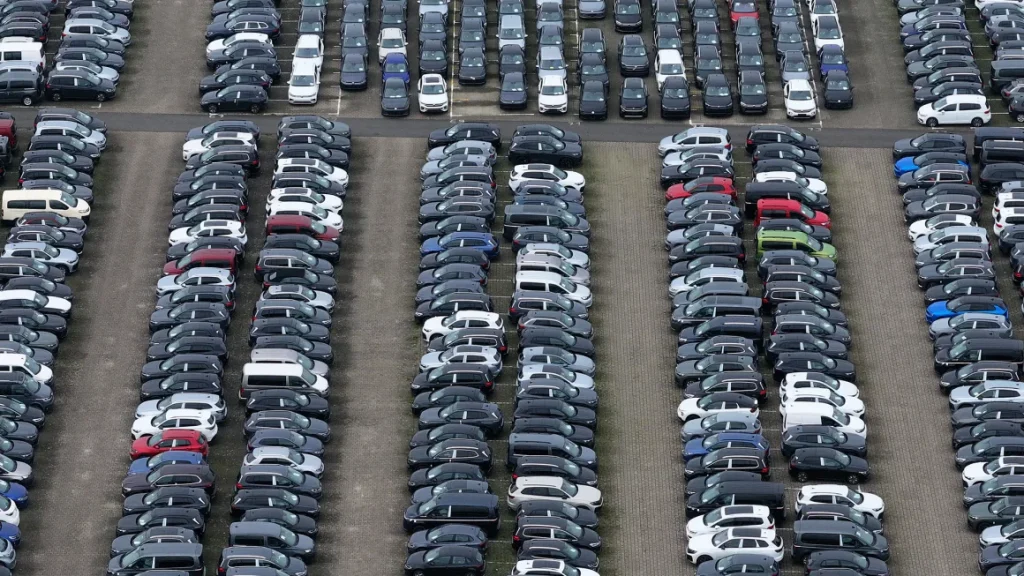
Germany Economic Crisis Volkswagen: The Struggles Reflect Economic Woes
The Germany economic crisis has come into sharp focus, with Volkswagen’s recent financial struggles highlighting deeper issues in Europe’s largest economy. Barely avoiding a recession in the third quarter, Germany posted a minimal 0.2% GDP growth, offering little relief as the country grapples with high costs, low productivity, and declining demand from key markets like China. The Germany economic crisis is reflected clearly in Volkswagen’s declining profits and restructuring efforts, signaling broader challenges for the German economy.
Volkswagen’s Role in the Germany Economic Crisis
Volkswagen, Germany’s largest automaker, has seen its profits fall by 21% in the first nine months of 2023. This drop is partly due to high operating costs and weak demand, particularly in China, a critical market for the automaker. Volkswagen’s chief financial officer hinted at the possibility of “painful” cost-cutting measures, including plant closures in Germany, to address these issues. This decline in profitability and restructuring within Volkswagen exemplify the Germany economic crisis, which affects the entire automotive sector and highlights the broader economic pressures facing the country.
As the automotive industry constitutes around 5% of Germany’s GDP and employs approximately 800,000 people, Volkswagen’s struggles are a clear reflection of the Germany economic crisis. High energy costs, elevated taxes, and an aging workforce pose systemic challenges, threatening Germany’s export-driven model. A recent study by the Federation of German Industries (BDI) predicts that one-fifth of Germany’s industrial output could be at risk by 2030 due to these economic pressures and increasing competition from abroad.
Structural Issues Deepening the Germany Economic Crisis
Germany’s economic model, traditionally built on exports and a strong manufacturing base, is now under strain. Factors such as high labor costs, energy expenses, and aging demographics limit Germany’s competitiveness on the global stage. A report from the German Economic Institute and Boston Consulting Group recommends a €1.4 trillion investment in green technology, infrastructure, and innovation to address these issues by 2030. However, the country’s constitutional “debt brake” restricts government borrowing, limiting available funding to support this large-scale transformation.
Political divisions within Germany’s coalition government add to the challenges, delaying policy reforms that are essential for addressing the Germany economic crisis. While inflation is expected to ease next year, economists predict that the nation’s economic troubles may persist until at least 2026, when new governmental leadership could prioritize structural reforms.
Volkswagen’s challenges mirror the Germany economic crisis, emphasizing the need for transformative changes to secure economic resilience. Without these adjustments, Germany risks losing its prominent position as a global economic leader in the years to come.



